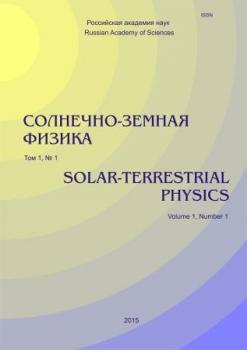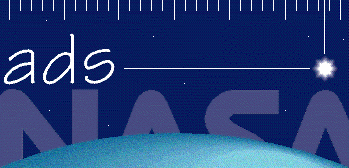from 01.01.1975 until now
Krasnoyarsk, Krasnoyarsk, Russian Federation
Measurements of the fair-weather electric field in mountainous areas are affected by the terrain, and therefore need additional calibration to be included in the global field picture. To do this, it is proposed to solve the three-dimensional electric current continuity problem of the atmosphere in the region between the Earth's surface and the ionosphere. As an example, the neighborhood of Klyuchevskaya Sopka is considered. With an increase in the height of the plateaus, the fair-weather electric current density above them increases, and the electric field strength decreases. A one-dimensional model of atmosphere conductivity is not applicable for terrain with steep slopes. A comparison of the daily-seasonal diagrams constructed according to the data of the Carnegie Cruise VII and according to the Tomsk Observatory showed the similarity of variations of the fair-weather electric field strength in such different places on the Earth. The field over the sea is about half as small as over low-lying land at the same time.
atmosphere, global electric circuit, fair-weather electric field, calibration, relief, daily-seasonal diagram
1. Adzhiev A.H., Boldyreff A.S., Dorina A.N., Kudrinskaya T.V., Kupovykh G.V., Novikova O.V., Panchishkina I.N., et al. Alpine atmospheric electricity monitoring and radon-222 measurement near Elbrus. Proc. 14th Int. Conf. Atm. Electricity. Rio-de-Janeiro, Brazil, 2011, pp. 112-115.
2. Akbashev R., Firstov P., Cherneva N. Recording of atmospheric electrical potential gradient in the central part of Kamchatka peninsula. Solar-Terrestrial Relations and Physics of Earthquake Precursors 2013. E3S Web of Conferences, 2013, vol. 62, 8620. DOI:https://doi.org/10.1051/e3sconf/20186202013.
3. Ampferer M., Denisenko V.V., Hausleitner W., Krauss S., Stangl G., Boudjada M.Y., Biernat H.K. Decrease of the electric field penetration into the ionosphere due to low conductivity at the near ground atmospheric layer. Ann. Geophys., 2010, vol. 28, no. 3, pp. 779-787. DOI:https://doi.org/10.5194/angeo-28-779-2010.
4. Denisenko V.V., Pomozov E.V. Global electric fields in the Earth's atmosphere calculation. J. Comp. Tech. 2010, vol. 15, no. 5, pp. 34-50. (In Russian).
5. Denisenko V.V, Yakubailik O.E. The contribution of topography to the resistance of the global atmospheric conductor. Solar-Terr. Phys. 2015, vol. 1, no. 1, pp. 104-108. DOI:https://doi.org/10.12737/6044. (In Russian).
6. Denisenko V.V., Rycroft M.J., Harrison R.G. Mathematical simulation of the ionospheric electric field as a part of the Global Electric Circuit. Surveys Geophys. 2019, vol. 40, no. 1, pp. 1-35. DOI:https://doi.org/10.1007/s10712-018-9499-6.
7. Denisenko V.V., Rycroft M.J., Harrison R.G. Mathematical model of the global ionospheric electric field generated by thunderstorms. Bulletin RAS: Phys. 2023, vol. 87, no. 1, pp. 118-123. DOI:https://doi.org/10.3103/S1062873822700277.
8. Handbook of Geophysics. United States Air Force. NY: The Macmillan Company. 1960. 571 p.
9. Harrison R.G. The Carnegie Curve. Surveys Geophys. 2013, vol. 34, pp. 209-232. DOI:https://doi.org/10.1007/s10712-012-9210-2.
10. Harrison R.G., Aplin K.L., Rycroft M.J. Atmospheric electricity coupling between earthquake regions and the ionosphere. J. Atmos. Solar-Terr. Phys. 2010, vol. 72, pp. 376-381. DOI:https://doi.org/10.1016/j.jastp.2009.12.004.
11. Mareev E.A. Achievements and prospects of research of the global electric circuit. Achiev. Phys. Sci., 2010, vol. 180, no. 5, pp. 527-534. DOI:https://doi.org/10.3367/UFNr.0180.201005h.0527.
12. Mikhlin S.G. Linear partial differential equations. M.: Higher School, 1977, 431 p.
13. Molchanov O., Hayakawa M. Seismo-electromagnetics and related phenomena: history and latest results. Tokyo: TERRAPUB. 2008, 189 p.
14. Pustovalov K., Nagorskiy P., Oglezneva M., Smirnov S. The electric field of the undisturbed atmosphere in the South of Western Siberia: a case study on Tomsk. Atmosphere. 2022, vol. 13, pp. 614-633. DOI:https://doi.org/10.3390/atmos13040614.
15. Rycroft M.J., Odzimek A. Effects of lightning and sprites on the ionospheric potential, and threshold effects on sprite initiation, obtained using an analog model of the global atmospheric electric circuit. J. Geophys. Res., 2010, vol. 115, A00E37. DOI:https://doi.org/10.1029/2009JA014758.


















